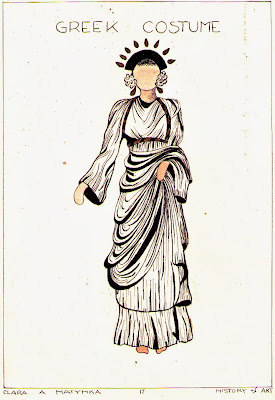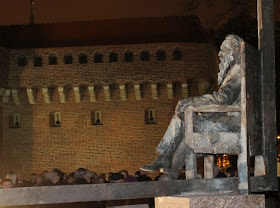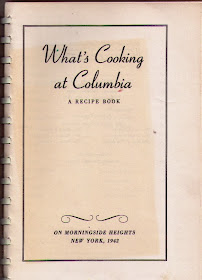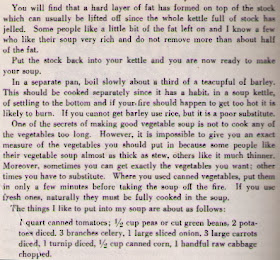Last post, we had just pulled a spiral-bound recipe book out of one of the cartons and looked it over. The first recipe in the book was striking.
 |
| General Eisenhower in North Africa |
Along with the book was a crackly copy of the Thursday, January 13, 1949
Columbia Daily Spectator ("Founded 1877".)
 |
Ambassador Koo received the Hamilton Medal at the dinner.
He was also served Eisenhower Vegetable Soup. |
 |
On Page Five we are assured that
"General Eisenhower's recipe
for "potage à la Eisenhower,"
served Tuesday night at the
Hamilton Award dinner, was
first published in "What's
Cooking at Columbia." This
volume, a book of recipes comp-
piled by wives of the Columbia
faculty, is on sale at the Co-
lumbia University Bookstore." |
So why did Columbia honor the Chinese Ambassador to the United States in January of 1949? Let me get my coffee, and I'll just transcribe the story.
"A China enslaved by 'militant Communism' would endanger free peoples throughout the world, Dr. V. K. Wellington Koo, Chinese Ambassador to the U.S. warned Tuesday night. He spoke after receiving the 1949 Alexander Hamilton Medal from the College alumni association."
"More than 400 alumni and guests attended the dinner honoring Dr. Koo, held in the Hotel Biltmore. The speakers in addition to Dr. Koo were Frank S. Hogan, president of the alumni association, statesman John Foster Dulles, General Eisenhower, and Arthur U. Pope, head of the Asia Institute."
"Sixty gallons of 'Vegetable Soup Eisenhower' were ladled out to the assembled guests, and the broth was hailed by some as the high spot on the menu."
"Mr. Hogan made the presentation of the Hamilton Medal, after sketching the Chinese Ambassador's colorful undergraduate career at Columbia."
"In his response, after warning that Asia is in 'far greater' peril than Europe of falling under Communist influence, Dr. Koo injected a note of optimism. 'The leaders of international Communism are realists,' he said. 'In the face of the growing unity of free nations, the Communists may yet realize the futility of their own dream of world domination.'"
"President Eisenhower praised the guest of honor as 'an apostle of peace,' and added, 'You are an undying, implacable foe to the idea that a despotic Communism can sweep over and enslave a people where we want (sic) to be free.'"
It's hard to believe that
Eisenhower could ever possibly have produced an utterance so illogical and fatuous, not to mention ungrammatical. The reporter must have been into the booze, or else just illogical and fatuous himself.
Plus ça change, plus c'est la même chose, in this case magical thinking. Of course they can; they'd done it before.
"The dinner was picketed by 23 students who paraded in front of the 43d St. entrance to the hotel, carrying placards and chanting, 'Stop the murder of Chinese students.' They distributed handbills identifying themselves as members of the International Students for a Free Far East, and the Committee for a Democratic Far Eastern Policy."
Eighteen months after this dinner party, North Korean forces
invaded South Korea, with Soviet material support and, soon, Red Chinese participation in the ensuing war.


















































